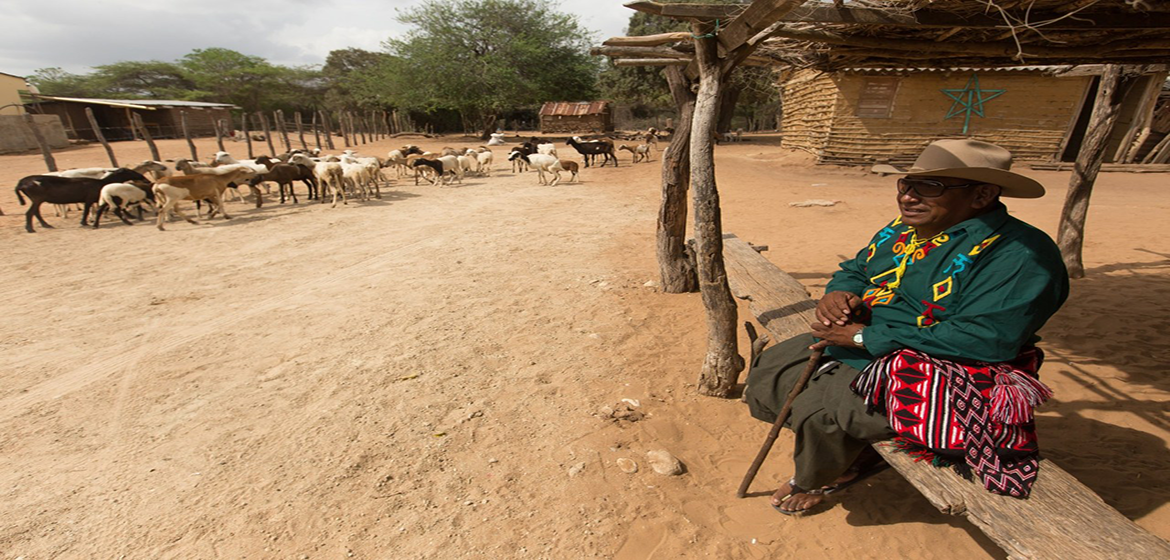By Gloria Pallares
How collective land tenure may determine the success of the country’s peace agreement
- Recognition of collective land tenure rights in Colombia is among the strongest in Latin America: there has been constitutional backing , and more than 30 million hectares of forests have already been designated as indigenous land. However, this legal protection often falls short of securing rights on the ground.
As the country moves on from a five-decade conflict and launches a nationwide land-planning process, securing collective rights — not just individual ones — becomes key to the success of a hard-won national .
To better understand the state of affairs and what drives collective tenure security, experts at the (CIFOR) and in Bogotá gauged the perceptions of indigenous and afrodescendent communities in the Pacific and Caribbean regions. That study was complemented by analyses of the and the evolution of communal in Colombia.
“Now, it is more important than ever to address collective rights,” says Johana Herrera, a researcher at Javeriana University and co-author of a on the topic (in Spanish). “Colombia is changing its regulations on access to land, but these rights are being relegated to the background,” she adds.
Iliana Monterroso, a a post-doc research fellow with CIFOR’s Equal Opportunities, Gender, Justice and Tenure Team, highlights the urgency of the matter: “Lack of acknowledgement of preexisting rights may result in conflict, so there is a need for mechanisms to review existing claims,” she says.
To help bring these concerns to the forefront of negotiations and guide public policies on land tenure, Herrera and fellow researchers looked to a method known as (PPA).
The researchers organized a series of workshops with representatives of five ethnic communities and guided them through a triple task: defining the concept of security concerning collective land tenure; identifying variables that affect it and how they relate to each other, and coming up with action plans leading to a desired future scenario.
CONFLICTING AGENDAS
Results provided revealing insights into the reality of collective land tenure. First of all, “the Constitution prominently recognizes collective rights, but indigenous groups said their participation in decision-making remains mostly theoretical,” says Herrera.
“The truth is that indigenous reservations [known as resguardos] are extremely vulnerable to development agendas that drive large-scale violations of collective rights, including mining, energy and tourism projects.”
According to co-author and lawyer Marco Alberto Velásquez Ruiz, also from Javeriana University, there is a clash between the various laws concerning land property and use: “One of the main challenges to collective rights are competing interests that view land and natural resources exclusively as commodities.”
In fact, conflicts around land tenure, access and use are set to remain a challenge as the post-conflict transition unfolds. These disputes, the research notes, may come in various forms.
Beyond extractive activities in valuable forest ecosystems, there is the mounting tension between ethnic groups and small-scale farmers, as well as the risk posed by areas that are pending registration as state lands.
Herrera explains that Colombia is one of few countries in Latin America without a map of public lands, given the impenetrability of nearly half of its territory during the armed conflict. Around six million hectares are to be earmarked to that effect, but “prospective areas often correspond to lands traditionally inhabited by ethnic groups.”
According to Monterroso, this is why taking stock of pending territorial claims by ethnic groups, both in terms of extent and location, is important to inform the implementation of new regulations.
One issue the various ethnic communities coalesced around was the need to build their technical capacity, so that they can fully engage in discussions concerning tenure over their ancestral lands.
“There is a need for well-trained community members who can interpret satellite images and maps, instead of having to rely on academics or the government,” says Herrera.
According to researchers, the uncertainty around the post-conflict development agenda poses challenges, but also opportunities to sustainably align economic growth with fundamental rights and the conservation of precious forest ecosystems.
OPPORTUNITIES
Understanding the actors and drivers that affect collective tenure security is the first step to improving policies and practices on the ground.
Harmonizing a profusion of contradictory regulations on land use and natural resources; empowering ethnic groups through technical capacity-building; and effectively including them in land-use planning are three of the public policy recommendations outlined by the working paper.
“What is the role of ethnic communities in the implementation of the peace process? And how are we going to take their aspirations into account?” Herrera says these are the bigger issues that must be addressed in the current transitional period.
One way to get dialogue started between public actors and ethnic groups is by “catching up to how these communities and their territories have evolved, and what role their evolving societies want to play in the future,” she adds.
Source:
Related to SDG 16: Peace, justice and strong institutions and SDG 10: Reduced inequalities



